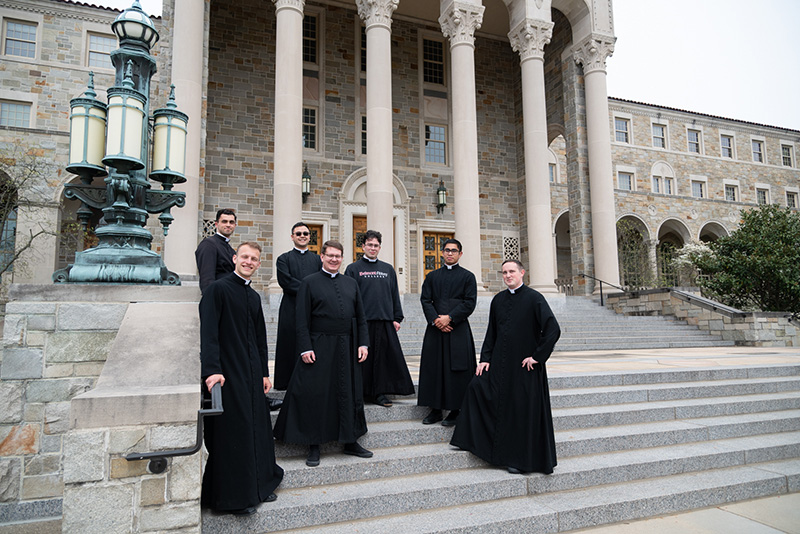 CHARLOTTE — On June 15, seven men will be ordained priests at St. Mark Church in Huntersville, one of the largest groups to take this step together for the Diocese of Charlotte – and evidence of the continuing success of the diocese’s expanded emphasis on vocations. This diverse class brings men from parishes across the diocese. They are:
CHARLOTTE — On June 15, seven men will be ordained priests at St. Mark Church in Huntersville, one of the largest groups to take this step together for the Diocese of Charlotte – and evidence of the continuing success of the diocese’s expanded emphasis on vocations. This diverse class brings men from parishes across the diocese. They are:
• Matthew Wayne Dimock Jr. of St. Thomas Aquinas Parish in Charlotte
• Christian Joseph Goduti of St. Mark Parish in Huntersville
• Matthew Philip Harrison II of Sacred Heart Parish in Salisbury
• Kevin Ruben Martinez and José Alfredo Palma Torres, both of St. Joseph Parish in Asheboro
• Elliott Cade Suttle of St. Mary Help of Christians Parish in Shelby, and
• Kevin Michael Tran of St. John Neumann Parish in Charlotte.
The seven men all recently received their Master of Divinity from Mount St. Mary’s Seminary and School of Theology in Cincinnati, Ohio, the final academic step of their formation.
Deacon Dimock says he’s been counting down the days to his ordination as a priest.
“It's everything that I've wanted, especially over these past eight years,” he said. “I'm looking forward to serving the People of God. I'm looking forward to hearing their confessions. I'm looking forward to celebrating Mass for them and just passing on the tradition to the faithful.”
In addition to attending the seminary together, the men share similar passions for music, sports, reading and a love of the Catholic faith.
Five of the seven were among the first classes at St. Joseph College Seminary for undergraduates discerning a possible religious vocation before taking the step of enrolling in St. Mary’s major seminary for more formal priestly training. Established in 2016, the college seminary is fostering growth of vocations in the diocese. Students work toward a bachelor’s degree at Belmont Abbey College while experiencing a Benedictine-style communal life on their path of discernment – now in a beautiful new building that opened in 2020, close to home.
Deacon Martinez applied for the college seminary his senior year of high school, unsure if they’d accept him so young or what it might mean to be part of the new seminary.
Watch videos from all seven ordinands in this player below:
“I grew up a cradle Catholic, and I received all of my sacraments of initiation from the same parish. I did not have a deep interest for religious things throughout my middle school and early high school years,” Deacon Martinez said. “But there was something that clicked inside of me, this movement of God's grace. I'd say that’s where I felt like I was lacking something in my life, and I wanted to get to know the Lord more. I started seeking after that peace that only He could give.”
“Growing up, faith was such a significant part of our education and our formation in the home. It was not foreign to see one of the kids praying on their own, and I didn’t feel like I stood out if I wanted to go to Mass or confession,” he said.
His brother John, who just graduated from St. Joseph College Seminary, has been a partner in Deacon Harrison’s journey to the priesthood.
“It’s possibly one of the greatest blessings that someone in seminary can ask for: to have another brother there. A lot of times I look to St. Peter and St. Andrew and how two brothers together following our Lord were such a powerful team from the foundation of the Church,” Deacon Harrison said.
Deacon Goduti has had several memorable experiences since becoming a deacon. He said he also looks forward to hearing confessions and celebrating Mass. To prepare for the priesthood, seminarians perform practice baptisms. He said the test runs don’t compare to the feeling of the first time he baptized a child – for real.
“It was just so surreal, especially right before I poured water and said the words over the girl,” he said. “That you were actually bringing the life of God into this soul, and it wasn't practice. It was the real deal, and that was amazing.”
Deacon Palma Torres, who was born in Mexico and grew up in the diocese, says he has understanding and comfort in relating to both cultures.
“I'll bring to the people of the diocese, the capacity to speak both languages, Spanish and English,” Deacon Palma Torres said. “I’m ready to serve them, without having a language barrier or having a culture barrier.”
Once he’s ordained a priest, Deacon Tran said he is looking forward the most to being able to consecrate the Eucharist wherever he goes. After ordination, Deacons Suttle and Tran are traveling to Japan.
Deacon Tran is excited to visit the sites where the Japanese Martyrs were witnessing to the faith and “be able to join myself in their own sacrifice and the sacrifice of the Mass,” he said.
Deacon Suttle, who taught English in Japan for four years, is looking forward to returning to his Japanese parish and celebrating Mass.
Deacon Suttle grew up as a Methodist and converted to Catholicism as an adult. He explored the monastery at Belmont Abbey as well as careers in IT and auto racing before a conversation with Father Peter Shaw, pastor of St. Joseph Church in Bryson City, opened his eyes to his vocation.
Leaving Japan, Deacon Suttle prayed about his next steps and said he discussed what he was feeling with Father Shaw, who urged him to go to seminary.
“ ‘That's great, Father, but I can't do that,’ ” Deacon Suttle recalls saying. “’I've got plans’ — which is the last thing you want to tell God. As soon as I gave that idea any kind of room to grow in my mind, I could see myself in Him in the confessional. And I knew at that moment that this is exactly where God was pointing me to go.”
And after he’s ordained next month, that’s what Deacon Suttle is most looking forward to: hearing confessions, which can bring absolution and reunion with God.
After their ordination, all seven will serve as priests in the diocese, with their first pastoral assignments announced with great suspense at the end of their ordination Mass.
“We have such a beautiful, growing diocese right now,” Deacon Dimock said. “I think that God has really worked His providential hand throughout the history of our diocese, but it's all sort of culminated to now at this moment where, we need to open new parishes, we need to build a new cathedral.
“There's just so many beautiful things happening in our diocese, and I'm grateful that God has called me to partake in the ministry here.”
All are welcome to attend the 10 a.m. ordination Mass Saturday, June 15, at St. Mark Church, located at 14740 Stumptown Road in Huntersville.
FIRST MASSES OF THANKSGIVING
Following their ordination, the new priests will offer first Masses at their home parishes on Sunday, June 16. All are invited to attend.
Matthew Dimock Jr.: 2 p.m. at St. Thomas Aquinas Church in Charlotte. Homilist: Father Matthew Kauth, rector of St. Joseph College Seminary.
Matthew Harrison II: 4 p.m. at Sacred Heart Church in Salisbury. Homilist: Father Darren Balkey, parochial vicar at St. Matthew Church.
Christian Goduti: 9 a.m. at St. Mark Church in Huntersville. Homilist: Father Timothy Reid, pastor of St. Ann Church.
Kevin Martinez: 11 a.m. at Our Lady of Grace Church in Greensboro. Homilist: Father Peter Rusciolelli, parochial vicar at St. Leo the Great.
José Palma Torres: 10:30 a.m. at St. Ann Church in Charlotte. Homilist: Father Chinonso Nnebe-Agumadu, parochial vicar at St. Mark Church.
Elliott Suttle: 9 a.m. at St. Mary Help of Christians Church in Shelby. Homilist: Father Peter Shaw, pastor of St. Joseph Church in Bryson City.
Kevin Tran: 5 p.m. at St. John Neumann Church. Homilist: Father Dominic Tran (his uncle), who is the provincial superior of the eastern province of the Salesians of Don Bosco.
VESTING THE NEW PRIESTS
During the June 15 Mass, the newly ordained priests will remove their deacon’s stoles and are presented with the symbols of their new office in the Church: a priestly stole and chasuble (vestment). This moment is known as the “investiture.” The priests are assisted by other priests they have personally chosen to vest them. Here, each of the new priests shares who they have chosen and why:
Matthew Dimock Jr.: Father Patrick Winslow: “He's been a mentor for me. I knew him when I was in high school at St. Thomas Aquinas, and he was my pastor at the time and after all these years, he's a good friend now, too.”
Christian Goduti: Father John Putnam: “He came to St. Mark Parish while I was a freshman in high school. He’s very much like a father to me.”
Matthew Harrison II: Father Aaron Huber: “He’s a fellow alpha class student from St. Joseph College Seminary, and we’re really close.”
Kevin Martinez: Father Casey Coleman: “I was assigned to him for a summer when he was pastor in Sylva. I got to really know him as the good man that he is, and he's taught me a lot about priesthood, about human nature. I think he's a fantastic role model.”
José Palma Torres: Father Phillip Kollithanath: “I chose him because he's my parish priest. In the very beginning, when I came to him and told him that I thought the Lord wanted me to be a priest, he very clearly told me I should enter diocesan formation.”
Elliott Suttle: Father Cory Catron: “Before my second year of theology, I was assigned to him for my summer assignment. We had a great time and developed a great friendship.”
Kevin Tran: Father Alfonso Gamez. “I’ve known Father Gamez since I was in high school. While he was in college at UNC-Charlotte, Father Gamez helped out with the youth ministry at my home parish, St. John Neumann. I've been kind of following his path, unknowingly. He was president of College Campus Ministry at UNC-Charlotte. And then eventually I became president of campus ministry. I went to the Pontifical College Josephinum with him.”
— Kimberly Bender
Read more: Holy Hour held for seven priests-to-be
GET TO KNOW OUR SOON-TO-BE PRIESTS
Deacon Matthew Dimock Jr.
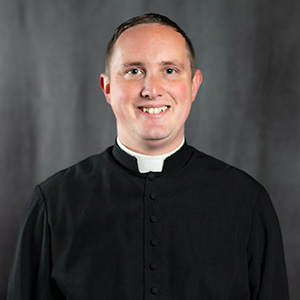 Home parish: St. Thomas Aquinas Church, Charlotte
Home parish: St. Thomas Aquinas Church, Charlotte
Birthplace: Little Rock, Arkansas
Raised in: Indian Trail
Age: 26
College: St. Joseph College Seminary
Favorite music: (Aside from anything sung in Church) “I listen to a lot of indie rock right now. I also listen to a lot of bluegrass, some country music. I grew up listening to a lot of country music, but I've sort of moved more toward the indie rock side of things.”
CNH: What has been your biggest challenge or struggle in living the faith?
Dimock: “The noisiness of the world is difficult to escape. My generation is often accused of having a short attention span, and those critics are correct! It’s a true reorientation to escape that noisiness, and cling to Christ Jesus in the silence of His Eucharistic Presence every day.”
CNH: How can priests today foster greater unity in the Church?
Dimock: “I hope that as a minister of the Word and preacher of the Gospel, I can take those truths that I have learned in seminary and give them to the People of God in a manner that they can comprehend. And that giving on of the Tradition, spoken of by St. Paul in 1 Corinthians 11:23, should be our model, and always accompanied by prayer.”
CNH: After you get ordained, what is the first thing you’re looking forward to doing?
Dimock: “I look forward to going on a multi-day hike without having to find Mass. After I get ordained, Mass goes along with me. I love hiking Grandfather Mountain in Linville and I’ve found some really beautiful hikes out in Brevard and up in Highlands and Sapphire.”
Deacon Christian Goduti
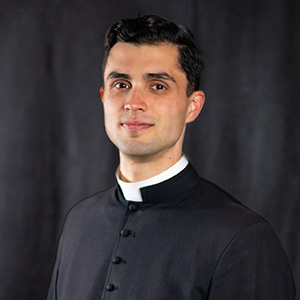 Home parish: St. Mark Church, Huntersville
Home parish: St. Mark Church, Huntersville
Birthplace: Charlotte
Raised in: Huntersville
Age: 25
College: St. Joseph College Seminary
Fun facts: Loves to cook, landscape and listen to audio books. Has listened to audio versions of the Bible. “The person who’s playing Jesus’ voice can throw it off, though. Not that you would have known what Jesus’ voice sounds like, but if it’s not necessarily the best voice for Him, it’s hard to just sit there. Maybe it’s better to just read the Gospels.”
CNH: What does faith mean to you personally?
Goduti: “Faith, believing in Jesus and His saving work, is necessary for our salvation. Faith is the gifted virtue by which we hold fast to Jesus Christ and all He has revealed. Personally, I am ever grateful to God for the gift of faith, and I ask the Blessed Mother for her intercession so that I may grow in this faith every day.”
CNH: What do you love most about the Catholic faith?
Goduti: “The Catholic faith has handed on through Scripture and tradition the treasured truth of the Eucharist. Our Lord Himself is present to us. It also hands on the beauty of the priesthood and the sacraments, of which the priest is a minister. I am ever grateful for the deposit of truth present in the Catholic Church."
CNH: After you get ordained, what is the first thing you’re looking forward to doing?
Goduti: “I know that after my first Mass and then the reception at the parish, we're going to have a family dinner, and I'm looking forward to that. I'm also making a pilgrimage to Fatima with my parents.”
Deacon Matthew Harrison II
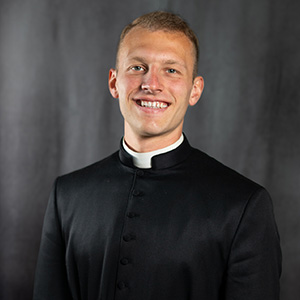 Home parish: Sacred Heart Church, Salisbury
Home parish: Sacred Heart Church, Salisbury
Birthplace: Richmond, Virginia
Raised in: North Carolina
Age: 26
College: St. Joseph College Seminary
Fun fact: Plays at least six instruments: guitar, mandolin, cello, piano, bagpipes and banjo, many self-taught. Family dinners often end with bluegrass jam sessions late into the night.
CNH: How did your family play a role in your discernment to the priesthood?
Harrison: “I am blessed to have an amazing family, and my process of discernment has heavily relied on their constant support, prayers and advice. My parents always encouraged me to serve at Mass growing up, always nurtured my desires and interest in the faith, and served as excellent models of the Christian life with their firm and constant love and joy."
CNH: What do you love most about the Catholic faith?
Harrison: “I love the communal nature of the sacraments. Coming together for Mass and singing to God, but then spending time afterward either with coffee and donuts or just chatting outside afterwards, is such an amazing privilege to be a part of. Our faith is built around the Body of Christ, and being a small part of that body is both fun and edifying.”
CNH: What do you see as the biggest challenge for the Church and the Diocese of Charlotte?
Harrison: “It seems to me the biggest challenge for the Church is the constant pursuit of Christ and holiness in a world that directly opposes that pursuit. Knowing what the Truth is, is one thing, but knowing who the Truth is, is much more important. It is crucial that we know Christ personally, and the best way this can happen is through silent prayer with Him.”
Deacon Kevin Martinez
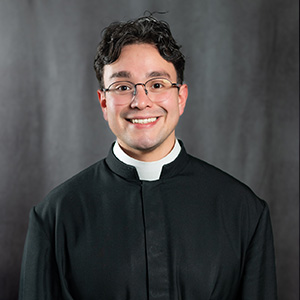 Home parish: St. Joseph Church, Asheboro
Home parish: St. Joseph Church, Asheboro
Birthplace: Asheboro
Raised in: Franklinville
Age: 26
College: St. Joseph College Seminary
Favorite food: Mom’s tacos, but loves everything mom makes.
CNH: Tell us about your family, where you grew up and how your family practiced the Catholic faith.
Martinez: “I am a first-generation American. My parents are from the same hometown in Mexico – specifically, El Rosario, Nayarit, Mexico. I was born in Asheboro but was raised on a farm in Franklinville. Until I entered seminary, I lived on the farm my whole life.
From very early on, my parents taught me the importance of the Catholic faith. Other things could be joked about, but Holy Mother Church was not to be joked about. The gravity and passion for the Church is something that was taught in my family. Although I didn’t always apply these properly throughout my earlier stages in life, my parents never failed me in teaching me what the Church taught.”
CNH: What do you love most about the Catholic faith?
Martinez: “I love the way we worship in the Catholic Church. It is Theocentric (God-centered). In other denominations, folks sit around and listen to a preacher deliver a sermon for an extended time.
In the Catholic Church, the efficaciousness of the worship is not dependent upon how well the priest delivers his homily. Our worship is centered around the Eucharist, the source and summit of our faith. The Mass is centered around the representation of Christ’s sacrifice for us. The Mass is the perfect act of worship, which is rendered to God the Father by Jesus Christ in the Holy Spirit. It is the unbloody sacrifice of Calvary, which takes place on the altar. This is what I love about the Catholic faith.”
CNH: How can priests today help foster greater unity in the Church?
Martinez: “By helping refocus people to realize what truly matters – furthering the kingdom of God upon Earth. During our earthly pilgrimage, we aim to know, love and serve God in this life and be with Him in the next. It is also our duty as baptized sons and daughters of the Father to bring as many souls as we can to God.”
Deacon José Palma Torres
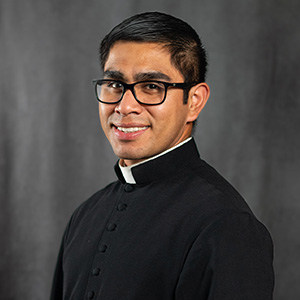 Home parish: St. Joseph Church, Asheboro
Home parish: St. Joseph Church, Asheboro
Birthplace: Veracruz, Mexico
Raised in: Randleman
Age: 30
College: St. Joseph College Seminary
Fun fact: Loves sports, dreamed of becoming a professional soccer player.
CNH: How did you live your faith in your young adult years, prior to discerning the seminary?
Palma Torres: “When I began taking my faith seriously, I started to pray by setting time in the mornings to read scripture. I had a job that was near my home parish, so I would often step into the church and pray before the tabernacle. Sometimes, I would stay there for up to an hour and sometimes it was just for a few minutes, but this practice was crucial in my discernment.”
CNH: What is one thing people would be surprised to know about you?
Palma Torres: “I have been blessed to learn different languages, so I can speak English, Spanish and Latin. I have also studied a little bit of Greek and some French."
CNH: What do you love most about the Catholic faith?
Palma Torres: “I love that the Catholic faith brings fulfillment to the ends for which man was created. In the faith, one worships God through the liturgy, which involves body and soul. One is able to know who God is through prayer, and one is also able to study theology and know about God. Faith and reason come together in a beautiful way so that everyone is able to know and love God.”
Deacon Elliott Suttle
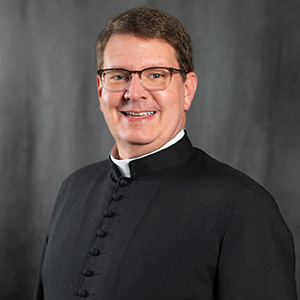 Home parish: St. Mary Help of Christians, Shelby
Home parish: St. Mary Help of Christians, Shelby
Birthplace: Lumberton
Raised in: Cherryville and Shelby
Age: 50
College: University of Alabama
Fun fact: Deacon Suttle collects hobbies: beer-making; car racing (watching and driving) ; hockey; fencing; hiking; backpacking; camping; archery; skateboarding; reading; writing short stories; board games.
CNH: What does faith mean to you personally?
Suttle: “I had to drive an hour each way to Mass every weekend when I lived in Japan. Even finding a parish in the first place was difficult because most don’t have websites. I also had to teach myself how to go to confession in Japanese due to the lack of English-speaking priests.”
CNH: How can priests today foster greater unity in the Church?
Suttle: “We need to demonstrate that the faith is bigger than any one of us. We all gravitate toward a spirituality or facet of the faith that speaks most to us. Just because my spirituality isn’t the same as yours doesn’t make us enemies, but rather just people who have different ways of relating to the same faith. Think of it this way: Franciscans, Dominicans and Benedictines all have very different ways of living out the Catholic faith. That doesn’t make one right and the others wrong. It just shows the breadth of the Catholic faith. That isn’t to say that anything you do is fine, however. You still have to ‘color within the lines,’ as it were. Having said all this, I will attempt to show people that, so long as you believe what the Church teaches to be true, we’re all working toward the same goal. We just go about it in different ways.”
Deacon Kevin Tran
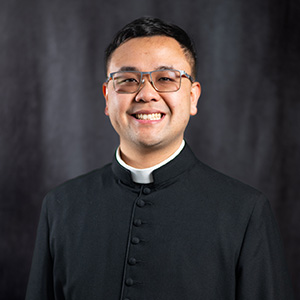 Home parish: St. John Neumann, Charlotte
Home parish: St. John Neumann, Charlotte
Birthplace and raised in: Charlotte
Age: 28
College:University of North Carolina, Charlotte
Favorite instrument: The trumpet. “I grew up playing the trumpet, and it’s the most quoted instrument in the Bible."
CNH: What do you see as the biggest challenge for the Church and for the Diocese of Charlotte?
Tran: “Thanks be to God that we in Charlotte have the problem of needing to expand and build. As immigrants continue to move to Charlotte, particularly Catholics from the northern states and Latin America, we should not assume they will be bringing a Catholic culture with them. Rather, the challenge in front of us will be the same as it has always been: evangelizing and re-evangelizing not just in deed but in word also.”
CNH: What do you love most about the Catholic faith?
Tran: “I love all the tangible signs we have of Christ’s promise that He would be with us to the end of the age, from the Paschal candle to the priesthood, to the Church herself and ultimately to the Blessed Sacrament itself.”
Watch video stories with each of them
FAQs about the rite of ordination and more
-
What happens during the rite of ordination?
The ordination rite has several key moments:
- Calling of the Candidates: In the ordination rite, after the opening prayers of the Mass and the scripture readings, the presentation of the candidate takes place. The candidate responds, “Present,” (in Latin, “Adsum”) steps forward and makes a sign of reverence.
- Presentation, Inquiry and Acceptance: The bishop then asks for testimony that the candidate has received proper training and is worthy of ordination. Father Christopher Gober, diocesan vocation director, attests that the candidate is prepared. The bishop then says: “Relying on the help of the Lord God and our Savior Jesus Christ, we choose this man, our brother, for the Order of the Priesthood.” The people respond “Thanks be to God,” and also give their approval by a hearty round of applause.
- Examination of the Candidate: After the homily, the candidate approaches the bishop, who asks him if he is willing to serve Christ and His Church as a faithful priest. The examination concludes with this exchange: Bishop Martin, “Do you resolve to be united more closely every day to Christ the High Priest, who offered Himself for us to the Father as a perfect sacrifice, and with Him to consecrate yourself to God for the salvation of all?” Candidate, “I do, with the help of God.”
- Promise of Obedience: The candidate then promises obedience to the authority of the Church and to his own religious superiors, as he kneels before the bishop. Why? The bishop is the head of the local Church. St. Ignatius of Antioch said the bishop is “typos tou Patros” – he is like the living image of God the Father. (CCC 1549) “The promise of obedience they make to the bishop at the moment of ordination and the kiss of peace from him at the end of the ordination liturgy mean that the bishop considers them his co-workers, his sons, his brothers and his friends, and that they in return owe him love and obedience.” (CCC 1567)
- Prayer for the Candidates: Bishop Martin kneels and invites all of those present to join in prayer for the candidate. This period of prayer includes the Litany of Supplication (commonly called the Litany of the Saints). The chanting of this ancient litany is an especially moving and memorable moment in the ordination ritual. The candidate prostrates himself before the altar as the prayers of the litany invoke God’s saving mercy and the intercession of all the saints to send down the Holy Spirit upon this man, soon to be a priest.
The Litany of the Saints is an ancient prayer. The Catholic Encyclopedia says, “It was used in the ‘Litania Septiformis’ of St. Gregory the Great, and in the procession of St. Mamertus. In the Eastern Church, litanies with the invocation of saints were employed in the days of St. Basil (d. 379) and of St. Gregory Thaumaturgus (d. about 270). It is not known when or by whom the litany was composed, but the order in which the Apostles are given, corresponding with that of the Canon of the Mass, proves its antiquity.” - Imposition of hands: This is an outward sign of the outpouring of the Holy Spirit. Just as Jesus conferred His priesthood on His Apostles, so too does the bishop and other priests lay hands upon the ordinand. It is the most ancient and universal outward ritual of the Church. “The laying on of hands by the bishop, with the consecratory prayer, constitutes the visible sign” of ordination. (CCC 1538) In this moment, as Bishop Martin lays his hands upon the head of the kneeling ordinand, he prays silently for the invocation of the Holy Spirit.
All the other priests who are present also join in the ordination ceremony. Each one in turn lays his hands silently upon the head of the candidate. This signifies that they all belong to, and participate in, the one priesthood of Jesus Christ. It is also a sign welcoming the newly ordained into the common brotherhood as priest - Prayer of Consecration: The bishop prays: “Grant, we pray, Almighty Father, to this, your servant, the dignity of the priesthood; renew deep within him the Spirit of holiness; may he henceforth possess this office which comes from You, O God, and is next in rank to the office of Bishop; and by the example of his manner of life, may he instill right conduct. May he be a worthy coworker with our Order, so that by his preaching and through the grace of the Holy Spirit the words of the Gospel may bear fruit in human hearts and reach even to the ends of the earth.”
- Vesting the New Priest: The newly-ordained priest now removes his deacon’s stole and is presented with the symbols of his new office in the Church: a priestly stole and chasuble. This is called the investiture.
- Anointing of the Hands: The bishop anoints the palms of the new priest with sacred chrism, praying, “The Lord Jesus Christ, whom the Father anointed with the Holy Spirit and power, guard and preserve you that you may sanctify the Christian people and offer sacrifice to God.” After the anointing with the oil, the priest’s hands are wrapped with a linen cloth. Anointing with sacred oil, or chrism, symbolizes the Holy Spirit. It is another ancient ritual that has Old Testament roots.
- Presentation of the Gifts: After the gifts of bread and wine are brought to the altar, the bishop gives to the new priest a chalice containing the wine, mixed with water, and the paten holding the bread. These are the sacred vessels used at each Mass to hold the Body and Blood of Christ in the Eucharist. As the priest receives the chalice and the paten, Bishop Martin says: “Receive the oblation of the holy people, to be offered to God. Understand what you do, imitate what you celebrate, and conform your life to the mystery of the Lord’s cross.”
- Kiss of Peace: Lastly, Bishop Martin gives the kiss of peace to the new priest, saying: “Peace be with you.”
The Mass continues as usual, with the new priest concelebrating fully in his first Eucharistic Sacrifice, standing close to Bishop Martin in a place of honor before the altar. The new priest also helps distribute Holy Communion.
Why does the Church ordain priests?
The rite of ordination is more than an “election” or “delegation” of someone as a priest. The sacrament “confers a gift of the Holy Spirit that permits the exercise of a ‘sacred power’ which can come only from Christ Himself through His Church.” (CCC 1538) The divine grace received through this rite sets these men apart – consecrates them, invests them – within the Church and gives them a unique mission among the People of God.
Why are only men ordained priests?
Jesus chose 12 men as His Apostles, conferring upon them the mission to serve in His place on earth, and the Apostles did the same when they chose others to join and to succeed them. The Church is bound by the choice that Jesus Himself made, so it’s not possible for women to be ordained. Though in earlier times there were several semi-clerical ranks of women in the Church (called deaconesses), they were not admitted to orders properly so called and had no spiritual authority. They ministered to women in particular, in instances where customs called for men and women to remain separate.
Why does the sacrament of holy orders confer an indelible mark?
Holy orders is one of three sacraments that have an indelible spiritual character – that is, they cannot be repeated or rescinded. The others are baptism and confirmation. From the moment of his ordination, a priest’s vocation and mission mark him permanently. (CCC 1583)
Like the sacrament of marriage, in which men and women give themselves totally to each other and grow in holiness together, holy orders is directed toward the salvation of others through the gift of oneself. “They confer a particular mission in the Church and serve to build up the People of God. … Those who receive the sacrament of holy orders are consecrated in Christ’s name ‘to feed the Church by the word and grace of God.’” (CCC 1534-1535)
A priest acts “in persona Christi” – that is, he acts with the authority of Christ, representing the person of Christ in administering the sacraments and shepherding the faithful – and “in nomine ecclesiae,” in the name of the Church. That doesn’t mean a priest is perfect! That just means that in administering the sacraments, the power of the Holy Spirit is assured.What does it mean to be ‘the voice and hands of Christ’?
In his 1990 address “On the Nature of the Priesthood,” then Cardinal Joseph Ratzinger (later Pope Benedict XVI) said: “Jesus gave His power to the Apostles in such a way that He made their ministry, as it were, a continuation of His own mission. ‘He who receives you receives me,’ He Himself says to the Twelve (Mt 10:40; cf. Lk 10:16; Jn 13:10).”
He added, “If Church usage calls ordination to the ministry of priesthood a ‘sacrament,’ the following is meant: This man is in no way performing functions for which he is highly qualified by his own natural ability nor is he doing the things that please him most and that are most profitable. On the contrary, the one who receives the sacrament is sent to give what he cannot give of his own strength; he is sent to act in the person of another, to be his living instrument. For this reason no human being can declare himself a priest; for this reason, too, no community can promote a person to this ministry by its own decree. Only from the sacrament, which belongs to God, can priesthood be received. Mission can only be received from the One who sends, from Christ in His sacrament, through which a person becomes the voice and the hands of Christ in the world.”
— Catholic News Herald


